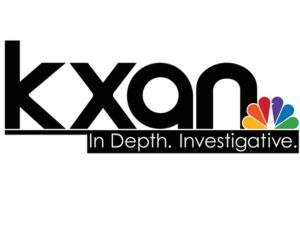 KXAN: Some are concerned Texas’ new ERCOT reform bills will cost customers
KXAN: Some are concerned Texas’ new ERCOT reform bills will cost customers
June 8 — There are concerns new laws intended to prevent massive power outages like what we saw during February’s winter storm don’t go far enough.
— READ MORE
 Texas Tribune: Texas power generation companies will have to better prepare for extreme weather under bills Gov. Greg Abbott signed into law
Texas Tribune: Texas power generation companies will have to better prepare for extreme weather under bills Gov. Greg Abbott signed into law
June 8 — The legislation written and finalized over the session addresses key areas of improvement, such as “weatherization” of power generators to prepare them for extreme weather, while neglecting other initiatives called for by experts, such as providing direct aid to consumers impacted by the storm.
— READ MORE
 Spectrum News: Gov. Abbott signs bills designed to prevent power grid failure, but concerns persist
Spectrum News: Gov. Abbott signs bills designed to prevent power grid failure, but concerns persist
June 9 — The new laws additionally call on the Texas Energy Reliability Council to improve coordination between state agencies and industry during weather emergences and mandate that all ERCOT board members actually live in Texas. That was not the case back in February.
— READ MORE
ABC News: Texas to reform energy grid in response to fatal blackouts caused by severe winter storms
June 9 — The new legislation includes “comprehensive reforms to fix all of the flaws that led to the power failure,” Abbott said Tuesday during the signing, including directives for power companies and some natural gas companies to upgrade facilities and weatherize the power grid, and a requirement for regulators to create an emergency alert system for when inclement weather and power outages are imminent.
— READ MORE
 San Antonio Current: As Abbott says Texas fixed all the causes of February’s blackouts, a new report suggests otherwise
San Antonio Current: As Abbott says Texas fixed all the causes of February’s blackouts, a new report suggests otherwise
June 9 — Last Thursday, five past Public Utility Commission of Texas commissioners and a senior regulatory advisor issued a lengthy report warning that the bill passed by the Texas Lege don’t go far enough. Their study calls for 20 additional reforms from both policymakers and regulators. Among other things, the report calls for stronger enforcement measures against power plants and natural gas facilities to ensure they actually weatherize. It also calls on the state to acknowledge the implications of climate change on the grid and to require higher energy-efficiency building standards.
— READ MORE
 Texas Monthly (Commentary): Griddy Argues It Was, in Fact, a Champion of Consumers
Texas Monthly (Commentary): Griddy Argues It Was, in Fact, a Champion of Consumers
June 9 — Griddy’s demise underscores long-standing flaws in the deregulated market—a lack of consumer protection, poor public understanding of the market, and virtually no provisions to safeguard reliability. Yet while Griddy customers got steamrolled in the February crisis, they also enjoyed years of significantly lower bills and the ability to adjust their electricity spending on a real-time basis—the exact sort of benefits that deregulation was supposed to offer consumers. “[Griddy’s customers] were seeking a better deal on power,” Wood said. “That’s kind of what the whole point of the market was—to allow people to have options. They just didn’t appreciate the downside.”
— READ MORE
 Forbes (Commentary): Take Out A Loan, Texas Legislators Tell Hurting Utilities, Consumers
Forbes (Commentary): Take Out A Loan, Texas Legislators Tell Hurting Utilities, Consumers
June 10 — There also was failure in the management of the grid when ERCOT kept charging at the highest rate two days longer than needed, worsening the debt situation for the utilities by $19 billion. CPS Energy has sued 18 gas suppliers as well as ERCOT. Some of the gas suppliers have sued CPS Energy. Gold-Williams and San Antonio Mayor Ron Nirenberg have been scathing in their attacks on the gas suppliers. The mayor has gone as far to accuse them of participating in “the largest illegal wealth transfer in the history of Texas.”
— READ MORE
 FOX 7: Public Utility Commission of Texas lifting moratorium on utility disconnections for non-payment
FOX 7: Public Utility Commission of Texas lifting moratorium on utility disconnections for non-payment
June 12 — Beginning June 19, 2021, retail electric providers (REPs) and water/sewer utilities must issue new disconnection warning notices to customers whose past due accounts put them at risk of service termination. According to PUC rules, those notices will trigger a ten-day waiting period to allow customers to arrange for payment, meaning disconnections can resume on June 29, 2021.
“This is not an easy decision and it was not taken lightly,” said PUC Chairman Peter Lake. “But by acting now, customers will be able to take advantage of deferred payment plans or federal assistance ahead of the summer season.”
— READ MORE
 KVUE: ERCOT won’t release records about winter storm, yet claims sovereign immunity
KVUE: ERCOT won’t release records about winter storm, yet claims sovereign immunity
June 10 — Even though ERCOT oversees the Texas power grid and operates on public funds, the agency argues it does not have to comply with the Texas Public Information Act.
— READ MORE
 Utility Dive: Texas lawmakers approve bill mandating power plant weatherization, market reforms
Utility Dive: Texas lawmakers approve bill mandating power plant weatherization, market reforms
June 4 — A Texas bill mandating weatherization for power generation and transmission, and implementing some market reforms after this winter’s storms caused widespread outages, has been approved by both the state House and Senate and is now being considered by Gov. Greg Abbott.
— READ MORE
 Houston Chronicle (Commentary): We helped design ERCOT, here’s how to prevent another major Texas electricity failure
Houston Chronicle (Commentary): We helped design ERCOT, here’s how to prevent another major Texas electricity failure
June 4 — The Arctic weather system that hit the South Central United States in February 2021 led to the deaths of almost 200 Texans (many more by some estimates), extended power outages for two-thirds of Texas residents and caused more than $100 billion in damages to Texans’ homes and property. These outages were a wake-up call that, as our power system evolves and threats increase, we must do more to keep our electric system reliable.
— READ MORE
 Houston Chronicle: Wind and solar power is rapidly growing in Texas, but ERCOT limits how much goes to the grid
Houston Chronicle: Wind and solar power is rapidly growing in Texas, but ERCOT limits how much goes to the grid
June 4 — Metallic fields of photovoltaic solar panels now stretch across once bare scrub land. Lines of sky-scraping wind turbines reach to the horizon. And with those renewable energy projects came “some of our only opportunities for economic development” in rural Texas, said Darby, a Republican from San Angelo.
— READ MORE
 S&P Global: Texas regulators mull ending disconnect moratorium, implementing legislation
S&P Global: Texas regulators mull ending disconnect moratorium, implementing legislation
June 3 — Texas utility regulators discussed June 3 the possibility of ending the moratorium on electricity disconnections for nonpayment that had been implemented after the mid-February winter storm, and they discussed timelines for implementing reforms passed during the legislative session that ended May 31.
— READ MORE
 Texas Tribune (Analysis): The Texas electric grid and the improvements that didn’t come
Texas Tribune (Analysis): The Texas electric grid and the improvements that didn’t come
June 7 — Texas lawmakers set out to make such disasters less likely in the future. And as The Texas Tribune’s Erin Douglas and Mitchell Ferman have reported, they made some progress. But they also left a lot undone.
— READ MORE
 RTO Insider: Texas Legislators Finish Work on Electricity Market — for Now
RTO Insider: Texas Legislators Finish Work on Electricity Market — for Now
June 6 — The Texas Legislature passed several pieces of legislation addressing ERCOT’s disastrous performance during February’s winter storm.
— READ MORE
 Utility Dive (Commentary): How a changing climate pushed the state’s power grid to the brink
Utility Dive (Commentary): How a changing climate pushed the state’s power grid to the brink
June 2 — When February’s polar vortex brought historically rare freezing temperatures to Texas, the Electric Reliability Council of Texas (ERCOT) initiated rotating outages to prevent the power grid’s collapse, leaving millions of Texans without electricity for days. The ensuing crisis (deemed the “Big Freeze”) led to residential heating shortages, burst pipes, water treatment plant failures, and an estimated 700 deaths — all of which disproportionately affected low-income communities of color.
— READ MORE
 NBC DFW: What Texas Lawmakers Did (And Did Not Do) to Address the Power Crisis
NBC DFW: What Texas Lawmakers Did (And Did Not Do) to Address the Power Crisis
June 2 — After months of promises, legislative hearings, and debates Texas lawmakers passed a series of bills over the weekend aimed at preventing another electricity disaster, like the one that crippled the state in February. So what is contained in the pages upon pages of new legislation that passed the Texas House and Senate? If Gov. Greg Abbott (R) signs the bills now headed for his desk will it really prevent a repeat of February?
— SEE THE REPORT
 S&P Global: ERCOT power prices could have been 73% lower during winter storm
S&P Global: ERCOT power prices could have been 73% lower during winter storm
June 2 — A study released June 1 found that electricity prices in the Electric Reliability Council Of Texas market would have been roughly 73% lower during portions of February’s deadly winter storm had regulators not inflated them to the $9,000/MWh legal cap.












